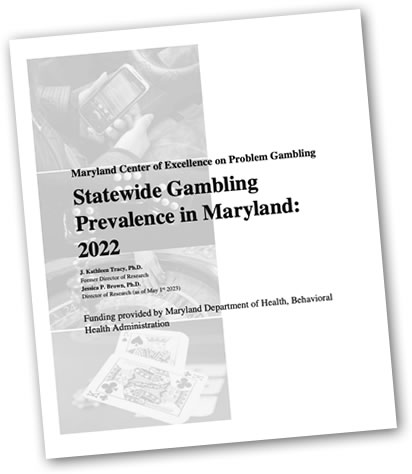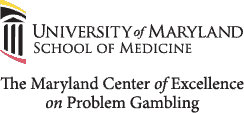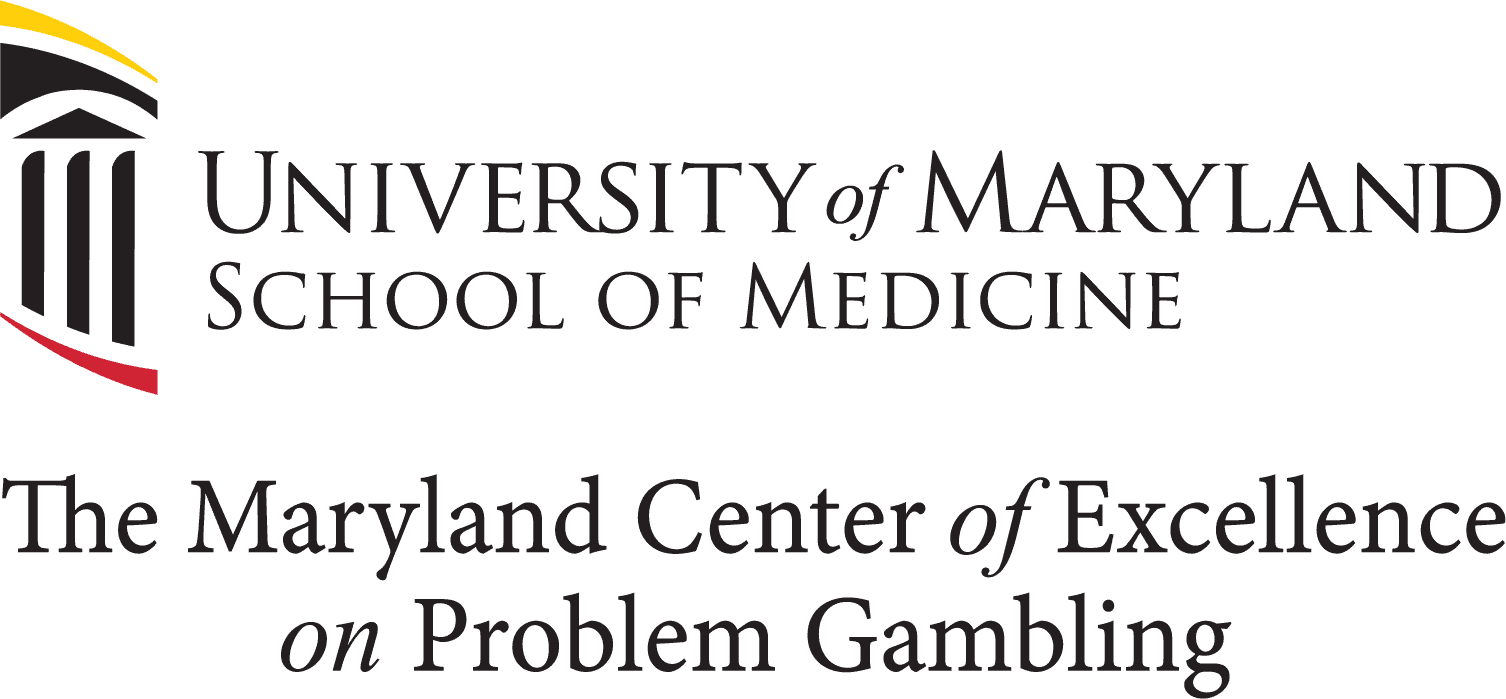Pause the betting...
ENJOY the Sport.
Winning a bet should not be more important than cheering on your hometown team with your friends and family. Learn how to recognize the risks…
Public Awareness Campaigns
Recent News
Upcoming Provider Training
| Type | Title | Date | Time | CEUs | View |
|---|

Gambling Research
Develop a greater understanding of gambling behaviors, impacts of gambling on the population, and identification of evidence-based approaches to mitigate harmful impacts of gambling.
Case Consultation Calls
WHO WE ARE
The Maryland Center of Excellence on Problem Gambling (the Center) is a program of the University of Maryland School of Medicine and funded by the Maryland Department of Health’s Behavioral Health Administration. The Center promotes healthy and informed choices regarding gambling and problem gambling through public awareness, training and education, prevention, technical assistance to the behavioral health care system, peer recovery support, research and public policy. It does so by working closely with appropriate state stakeholders and bringing together experts from a variety of disciplines including psychiatry, medicine, epidemiology, social work, law and others.





